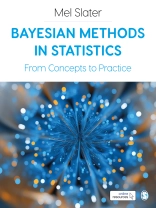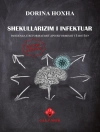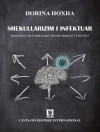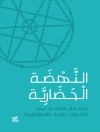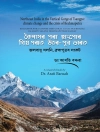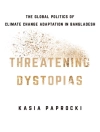This book walks you through learning probability and statistics from a Bayesian point of view.
From an introduction to probability theory through to frameworks for doing rigorous calculations of probability, it discusses Bayes’ Theorem before illustrating how to use it in a variety of different situations with data addressing social and psychological issues.
The book also:
- Equips you with coding skills in the statistical modelling language Stan and programming language R.
- Discusses how Bayesian approaches to statistics compare to classical approaches.
- Introduces Markov Chain Monte Carlo methods for doing Bayesian statistics through computer simulations, so you understand how Bayesian solutions are implemented.
Features include an introduction to each chapter and a chapter summary to help you check your learning. All the examples and data used in the book are also available in the online resources so you can practice at your own pace.
For readers with some understanding of basic mathematical functions and notation, this book will get you up and running so you can do Bayesian statistics with confidence.
Mục lục
Chapter 1: Probability
Chapter 2: Probability distributions
Chapter 3: Models and inference
Chapter 4: Relationships between variables
Chapter 5: General models
Chapter 6: Questionnaires and non-quantitative responses
Chapter 7: Multiple issues
Giới thiệu về tác giả
Mel Slater is a Distinguished Investigator at the University of Barcelona, and co-Director of the Event Lab (Experimental Virtual Environments for Neuroscience and Technology). He was previously Professor of Virtual Environments at University College London (UCL) in the Department of Computer Science. He was awarded the 2005 IEEE Virtual Reality Career Award: ‘In Recognition of Pioneering Achievements in Theory and Applications of Virtual Reality’. He is Field Editor of Frontiers in Virtual Reality, and Chief Editor of the Human Behaviour in VR section. He was awarded the Humboldt Research Prize from Germany in 2020. He is a Fellow of the Royal Statistical Society.
